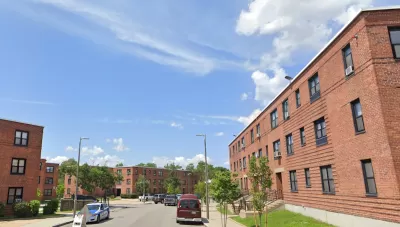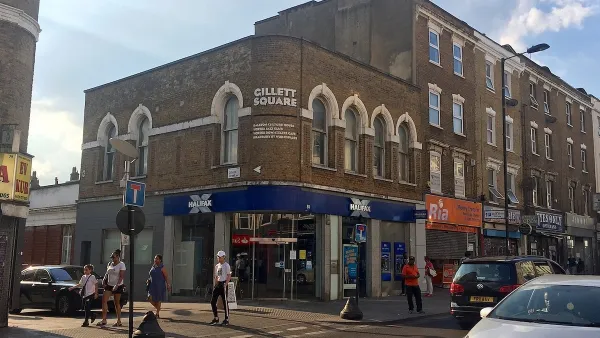A pilot program seeks to be a model for electrifying groups of buildings or entire neighborhoods.

A geothermal energy project in Boston will connect seven federal public housing buildings to a networked geothermal grid, the first in the city and the second such project in Massachusetts. “The networked geothermal system, which includes ground-source heat pumps, will replace an aging gas boiler loop that serves 129 units at the Franklin Field Apartments. The system will provide in-unit cooling, meaning residents will no longer have to purchase window air conditioning units to stay comfortable during hot days.”
As Ysabelle Kempe explains in Utility Dive, “Networked geothermal uses underground pipes to heat and cool buildings in a highly efficient manner by pulling heat from the ground in the winter and transferring indoor heat to the ground to cool buildings in the summer.”
The approach of electrifying groups of buildings aims to streamline the process of decarbonization, rather than relying on individual homes and buildings switching out individual appliances. In addition to lowering greenhouse gas emissions, electric appliances also benefit public health by limiting harmful indoor air pollutants.
FULL STORY: Boston’s first networked geothermal project will electrify 7 public housing buildings

Maui's Vacation Rental Debate Turns Ugly
Verbal attacks, misinformation campaigns and fistfights plague a high-stakes debate to convert thousands of vacation rentals into long-term housing.

Planetizen Federal Action Tracker
A weekly monitor of how Trump’s orders and actions are impacting planners and planning in America.

In Urban Planning, AI Prompting Could be the New Design Thinking
Creativity has long been key to great urban design. What if we see AI as our new creative partner?

Chicago’s Ghost Rails
Just beneath the surface of the modern city lie the remnants of its expansive early 20th-century streetcar system.

Baker Creek Pavilion: Blending Nature and Architecture in Knoxville
Knoxville’s urban wilderness planning initiative unveils the "Baker Creek Pavilion" to increase the city's access to green spaces.

Pedestrian Deaths Drop, Remain Twice as High as in 2009
Fatalities declined by 4 percent in 2024, but the U.S. is still nowhere close to ‘Vision Zero.’
Urban Design for Planners 1: Software Tools
This six-course series explores essential urban design concepts using open source software and equips planners with the tools they need to participate fully in the urban design process.
Planning for Universal Design
Learn the tools for implementing Universal Design in planning regulations.
planning NEXT
Appalachian Highlands Housing Partners
Mpact (founded as Rail~Volution)
City of Camden Redevelopment Agency
City of Astoria
City of Portland
City of Laramie





























